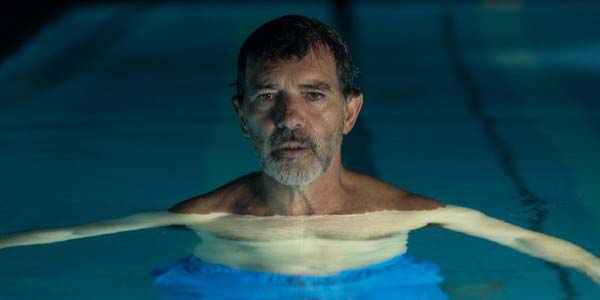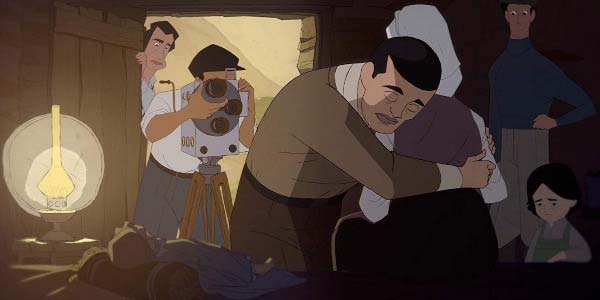Pain and Glory (2019)
Dir: Pedro Almodóvar | IMDb

Pedro Almodóvar is seen by many as the quintessential contemporary Spanish filmmaker, and his new film, the very personal Pain and Glory, is further proof that this status is warranted. The film follows Antonio Banderas’ ageing filmmaker Salvador as he prepares for a retrospective of his classic movie. This causes him to contact the lead actor Alberto (Asier Etxeandia), who he hasn’t spoken to for thirty years, as well as address his current inability to work and his many many physical ailments. There’s a lot to balance here, and perhaps in less experienced hands it could’ve felt a little messy. Not however, in Almodóvar’s.
It’s an intensely personal film, with Almodóvar clearly drawing from his own experiences. Banderas’ dreams often wander to his early life with his mother (a wonderful Penelope Cruz), which played such a crucial part in his development into the artist and the man he is today. These flashbacks are never jarring, and instead are some of the film’s best scenes. Almodóvar weaves these two timelines together expertly with such a wonderfully emotional connection slowly unveiled between the two.
Banderas is at the peak of his game here, working with deep, intense material. The role is a complex one, dealing, as already noted, with a multitude of issues, and quite frankly, failing to cope with many. Banderas has been great previously in his career, but has had his fair share of duds in the recent past. It’s fantastic to see him tackling such a challenging role and pulling it off with equal parts severity and melancholy; charm and playfulness.
Pain and Glory is another home-run for Almodóvar. Despite its potentially unwieldy story, the joint effort of the master filmmaker and the fantastic central performance from Banderas hold it all together.
Highly Recommended
Buñuel in the Labyrinth of Turtles (2019)
Dir: Salvador Simo Busom | IMDb

The story of surrealist artist and filmmaker Luis Buñuel is a fascinating one. The years that this film chooses to focus on are some of the most interesting too. Down in the dumps in Paris with his work shunned by the French, Buñuel was in something of a crisis. His friend Ramón however promised Buñuel that if he won the Christmas lottery that year he would give the money to Buñuel to make another film. Unbelievably Ramón won the money, and Buñuel set out to make the famous pseudo-documentary, Land Without Bread.
The choice to make this an animation was a smart one. Animation is the perfect form to tell Buñuel’s story as it lends itself well to the imagery floating around the artist’s head. Despite a few vibrant flashes though, director Salvador Simo Busom never fully takes advantage of this opportunity. It could’ve really used an extra splash of Buñuel’s surrealist magic on screen.
That’s because unfortunately for the most part this is quite a run of the mill effort. There are some powerful moments, not least a little girl who has lay down to die in the street in the poor village where Buñuel is filming. But, in general, the film feels like it doesn’t quite know what to focus on. One moment Buñuel is caring for the plight of those suffering most, and the next he is back to his bizarre, and often cruel, antics. The film flits between the two, and finally settles exactly in the middle of nowhere. Sure, it’s entertaining enough, but it’s frustrating that there’s not a little more focus on what exactly the director wants to impart.
Ultimately, it feels like the writers knew of the story and had a checklist of events that they needed to tick off. The film never quite feels coherent enough to say something interesting or to carry the real emotional impact that it strives for in passing moments.
This Spanish piece can never quite live up to the promise of its source material. Despite the intriguing story at the heart of it, and the colourful characters at the centre of it, the film never really takes off.






















